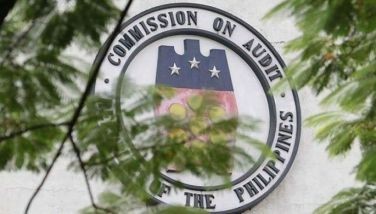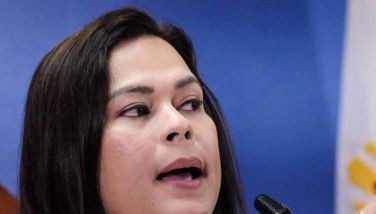‘President of what company?’

I was probably 13 years old then, and it was a time when landlines or rotary dial telephones were still in use. Back then, every time the phone rang, you instinctively rushed to answer before the constant ringing annoyed people in the room and also as courtesy not to make the caller wait too long.
It was mid-morning when the phone rang and right after I said “Hello,” the person on the other end said, “Hello, may I speak to Louie?” Having been trained how to take calls, I replied “Who’s calling please?” The gentleman on the other end replied: “The President,” to which I said, “President of what company, sir?”
The exasperated gentleman on the other end, who apparently knew who I was, said: “Luisito, this is President Marcos!” Needless to say, I must have jumped a few feet upon realizing who it was and that he knew who I was. That, I guess, was the only interaction I ever had with then president Ferdinand E. Marcos Sr.
Yes, back in the day, he actually made personal calls and had one-on-one meetings with members of media. He was never too big to do the small favors that could make the day of the ordinary reporter as much as the established columnists.
From my recollection, FM handled “sensitive” issues personally. Whether it was a scandal or a matter of “national security,” FM Sr. would make the phone call, if not send an invite. He was “traditional” in terms of keeping relationships warm and alive, and even in times when politics divided or polarized people, he privately reached out to fraternity brothers, political allies and long-time friends.
He understood the value of his friends in media so much that he tapped guys like Blas Ople, Kit Tatad, Doroy Valencia and many others to help him in government or with media management. Even during and after martial law and in exile, “the line” was always open, and warm welcomes given.
More importantly, Ferdinand Sr. had invested in his friendships with media for years and through the years. His relationship was not contrived or part of a needed campaign or plan to look good or “greening” of an otherwise unpopular public personality. He had “shared history” from university, frats, Congress, etc. and was not a “Johnny come lately” driven by a PR team that needed to improve popularity ratings in surveys.
IF FM Sr. were here today, the members of the media would be an “informal cluster” that would be the eyes and ears of the president as well as a rich source of analysis and possible solutions. As many observers have pointed out, FM Sr. considered every bit of information, even from the “Maritess,” just like the smoke where there is fire and he certainly encouraged trusted people to give him information.
Unfortunately, western political and communications practices has all but displaced the “old ways” and replaced them with channels, filters, confirmation and arm’s length inter-action and “deniability.” “Busy-ness” has also robbed leaders and presidents of developing real relationships and, subsequently, people’s loyalty.
President Bongbong Marcos recently expressed his desire to be more accessible and open to the media. It made me wonder where the President’s sentiments were coming from. There have been no recent criticism or negativity directed at the President. If we believe the surveys in the past months, the impression is that his ratings were just fine. In terms of coverage, the media has consistently featured just about every speech and ribbon cutting he has officiated at, not to mention all the special events at Malacañang. So what gives?
As a communications teacher and consultant, the only other possibilities would be that the recent political turmoil and show of force in Congress has stolen the President’s lightning or spotlight, making him pale in comparison to the quad comm. The other possibility is that FM Jr. continues to obsess with his vision or desire to be seen as “The Good President.”
Other than that, people might get the impression that the Cabinet members and his communications team are not living up to the expectations of the President. Clearly, a number of Cabinet secretaries would fail in terms of communicating with the media and that in turn makes it difficult for the public to understand how decisions are made.
PBBM would undoubtedly benefit from picking up on the long and effective practices of his late father. In order to do that, he would have to tap his “titos and titas,” with good and true friends in the media, or start fresh with those he respects, trusts or are like-minded.
This process of reconnection or seeding is a current reality, even for the biggest corporations in the country and the chairmen and CEOs are doing it “hands-on” and giving it a personal touch during shared meals or “two-hour lunches.” No rush, no favorites and just honest answers. It may not be what we want to hear, as long as it is the honest answer.
PBBM ought to follow his gut instinct, determine what he wants to communicate, get sincere and professional advice from independent minded experts and form the needed team to accomplish the goal. Like I said earlier, a “cabinet cluster group of media only” might be the motherlode of information and reports that need to reach the President.
Last but not least, do it for the right reason. To quote a meme I use in training: What do you do with a phone that’s out of service? You play games. In relationships without trust, we play games.
- Latest
- Trending




























